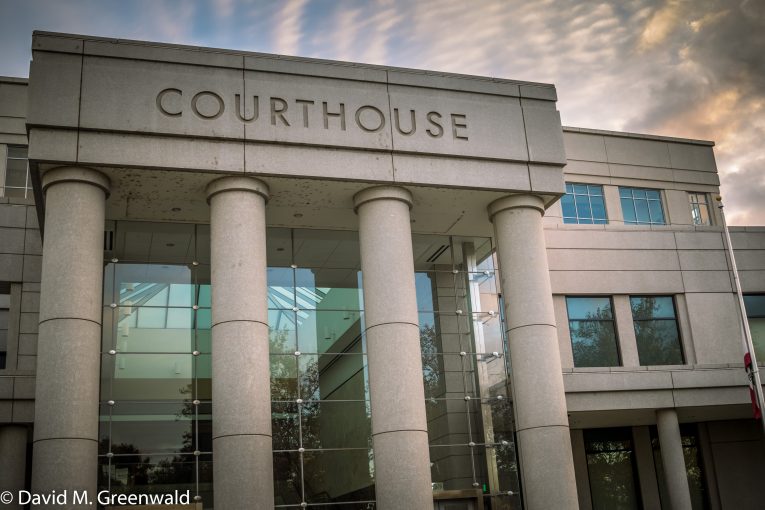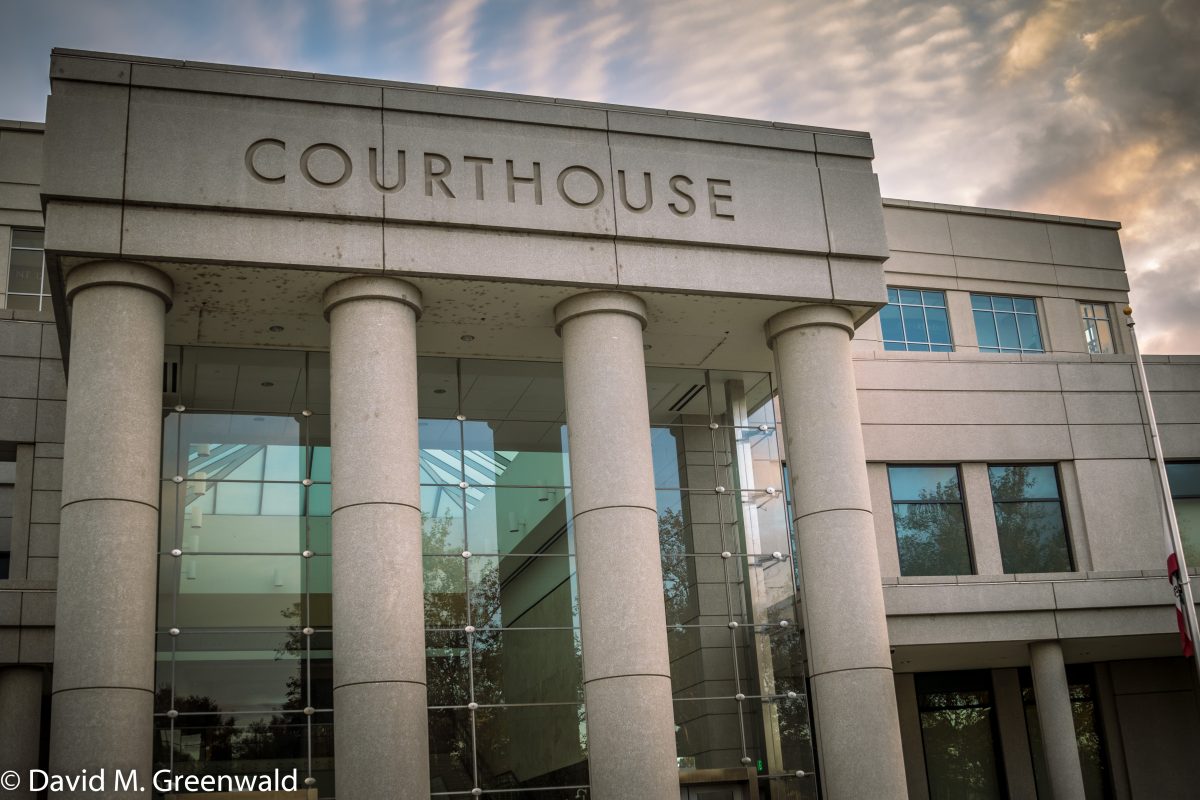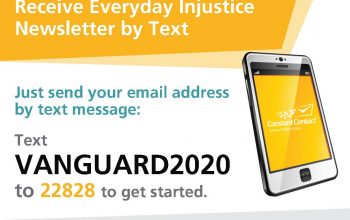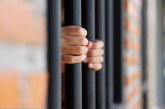

By Linhchi Nguyen
WOODLAND – A judge ruled here Friday that a defense attorney can call a key witness live via Zoom in a trial, but the District Attorney’s Office objected to having a remote testimony, citing difficulties for conducting an expert witness’s cross-examination in a jury trial via Zoom.
At an earlier hearing Yolo County Superior Court, Judge Paul Richardson wasn’t so sure about the Zoom testimony but has apparently had a change of heart.
Assistant Public Defender Stephen Betz has a November jury trial upcoming and, since both of his witnesses were going to be out of state, he requested the court to allow remote testimony.
In response, Deputy District Attorney Sara Abrate objected, claiming that “it will be impossible for the People to conduct cross-examination in a fair way to preserve our right to a fair trial and  our right to due process.”
our right to due process.”
One of Betz’s witnesses includes an expert, Dr. O’Donahugh, who is currently in Reno, Nevada, and would not be able to make a live appearance in the courtroom because he can’t travel because of COVID-19.
Betz cited various precedents, including Maryland v. Craig, that would allow the court to have a remote jury trial. Furthermore, he explained the necessity of having Dr. O’Donahugh’s testimony for the case.
“The problem is…there are limited experts in this area, and it’s hard to locate experts,” said Betz. “Obviously, there’s a finite amount of resources that could be donated to any one case.”
Judge Richardson offered that he recognized the importance of having Dr. O’Donahugh testify for the defense, as well as the concern of not finding another expert witness, given the limited time waived.
“I understand why the defense wants to call him. His area of expertise is something that would be a counterpoint to [the prosecution’s expert] testimony.” He further acknowledged that “the circumstances we find ourselves in are unusual,” implying the circumstances due to COVID-19, which may cause safety issues for traveling.
However, Abrate brought up several arguments, noting that in the past, “Dr. O’Donahugh has had (an) 80 to 100 page testimony,” and it would not be possible to cross-examine him where she would have to confront him with documents without the jury seeing that via Zoom.
“I can’t share a screen to only the witness, and the jury would be present to be able to see those things,” she explained. She added that this would be “limiting the People’s ability to effectively cross-examine a witness.”
cross-examine a witness.”
Another counter she brought up was the fact that “there’s nothing providing that an expert witness can testify remotely in the penal codes.” She denied the defendant’s reference to the precedent established by Maryland v. Craig, claiming that it revolves around a very different situation from the one they are facing.
“A lot of the issue was revolving around the Maryland statute that provided children, who have been victims of abuse, don’t have to face their accusers in testifying. California has a very similar statute…We’re not in that situation here.”
Lastly, Abrate stated, “This court has already ruled that remote testimony in a jury trial would be inappropriate when there’s no agreement from the parties. So, to now say that the defense can have remote testimony when the court ruled multiple times that that’s not appropriate…violates the People’s right to a fair trial.”
In counter, Betz affirmed that “there’s certainly authority and precedent” for granting a remote testimony in this case. Even so, he argued that “the court regardless has to look at it in a case-by-case basis.”
While Judge Richardson shared the prosecutor’s concern in figuring out a way to present evidence to a remote witness, he ultimately came to the decision that “allowing Dr. O’Donahugh to testify remotely will be appropriate under the current situation we find ourselves in.
“With a caveat,” he quickly added. “Both sides need to think about how they’re going to be able to effectually appropriate confrontation given the limitations of the Zoom.”
Judge Richardson added that he would be willing to give a short continuance on the trial to see whether both parties can work this out. He encouraged the attorneys to contact their IT service in their respective offices to figure out how they could overcome the obstacles in presenting evidence through Zoom.
“If we cannot [figure it out], then there will be a need for witnesses to actually be here,” said the judge.
Judge Richardson then proceeded to set the date for the jury trial for Nov. 30, 9 a.m.
To sign up for our new newsletter – Everyday Injustice – https://tinyurl.com/yyultcf9





